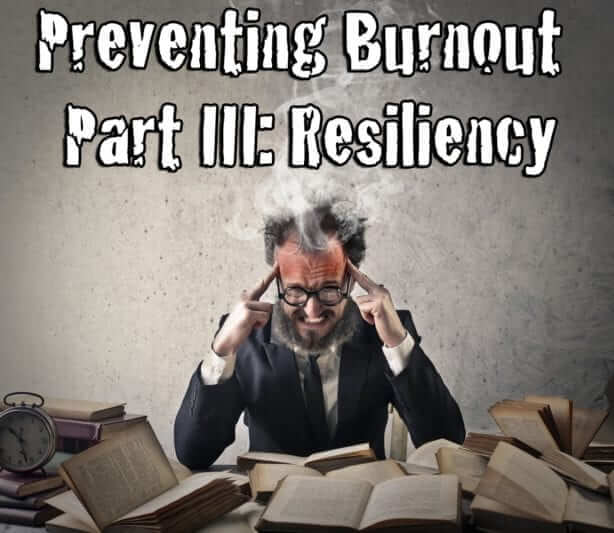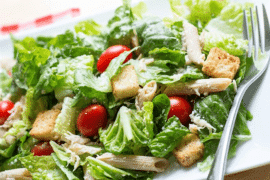Preventing Burnout Part III: Resiliency
The following is the first part of our “preventing teacher burnout” series presented by our colleagues at TeacherCoach.
Resiliency is a concept nearly always applied to children’s well-being, but it’s less understood for the wellness of teachers. Consider the 8th grade teacher who is told after 15 years of teaching they are switching her grade with four weeks- notice. This may not seem like much to an outsider but any teacher will tell you this is one of the most disruptive experiences imaginable.
Resiliency is simply an ingredient for adaptation, or how we cope with change. The ability to make changes based on how well we interpret internal and external stress and then use that information to pivot in a new direction, determines our level of overall adaptation. Adaptation also means changing our mindset for new situations, understanding when to resist and when to explore. Resiliency is tolerating the distress that comes along with this process of adaptation and our overall success in navigating change.
As educators, we experience change perhaps faster than many other professions. Every new technology, social media, or corresponding policy shift is just the tip of the iceberg. Every ambitious theorist who suggests the newest pedagogical model, innovator who introduces the latest learning ‘tool’, or policy maker who promotes their new professional development plan are all challenging our tolerance for change and willingness to adapt.
As educators on the front line, who know better than any what is best for kids, often have the least input about changes. While change is critical to an often, antiquated system of education, it is still disconcerting if we don’t have the time, space, or energy to adequately prepare. Not everybody appreciates change and our natural resistance is often to fight against it, if we didn’t have a part in creating it.
Change in education, like life is a constant- sometimes occurring as episodic or sporadic. Instead of saying ‘it can happen when we least expect it’, it might be more fitting to say that change catches us off guard, when we are not prepared for it. How we feel when this happens or even when we expect change but don’t agree with it, determines how much stress we feel. Implementing changes, we don’t support feels burdensome and will contribute to burnout.
In preventing burnout, we are well served by being more adaptable, not simply in a passive manner that shows no outward signs of distress, but in a truly flexible fashion with us nimbly pivoting in ways that help us feel more in control than out. ‘I don’t approve of this corrective method of action, so let me see how I can put my own finesse to it’ or ‘I think the time we spend testing is wasteful, so let me vocalize my concerns constructively, while understanding the deep underpinnings of this movement- which can be fascinating’.
Resilient people learn from challenges, integrating new information into our existing understanding of the world as opposed to being resentful of the world for the damage ‘it’ has inflicted. This is of course easier to do when the world has seemed more fair/ kind but the reality is, sometimes life just sucks. As an educator, you see more types of unfairness than most, with impoverished kids, abuse, and other forms of societal injustice.
There are personal traits/ characteristics that help a person be more resilient.
- Curiosity allows us to be flexible as opposed to rigid because we are exploring rather than resisting. For instance, our emphasis on testing is an overcorrection to a problem of accountability, that happens not just in systems, but with people.
- Flexible as opposed to rigid thinking comes in part from being stuck in concrete operations, an early development state of children. Move away from clear right and wrongs to consider perspectives.
- Not personalizing but recognizing that life is unfair and we don’t always deserve what we get. If we embrace pain and aren’t surprised by inequity, we can move on quicker.
- People who are more determined, hopeful, and tolerant tend to be more resilient because they keep pushing forward without getting easily discouraged.
- Ego strength or the psychological threshold by which we can endure failure, disappointment, criticisms. For instance, Donald Trump has done a tremendous job enduring business stress but a less ideal job enduring emotional duress, such as when somebody says something hurtful about him.
- Resiliency is also a function of self-awareness. The more we are aware of our limitations and our attributes, the better we can determine what internal and external resources to pull from when under duress. A good support system helps but so does a recognition of what we can handle. If timing isn’t good, our limits for distress may be less, meaning we don’t allow ourselves to feel as vulnerable.
If we are supported while raising our tolerance of discomfort, such as lifting more weights each time we go to the gym, sometimes with the help of a personal trainer, we build confidence to push ourselves beyond our expected limits and decrease the amount of residual stress. Combined with improved self-care, this is how we grow our resiliency.
This article is written by Jared Scherz, Ph.D., M.Ed. and CEO, of TeacherCoach a professional and personal teacher health site.





